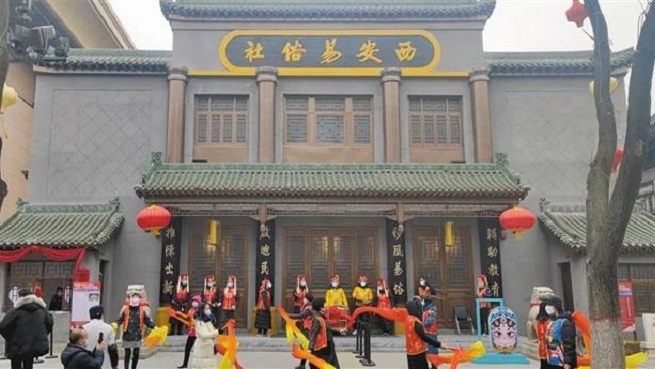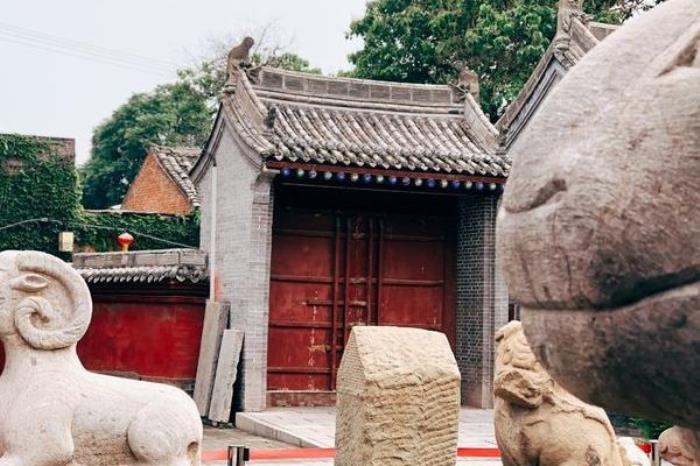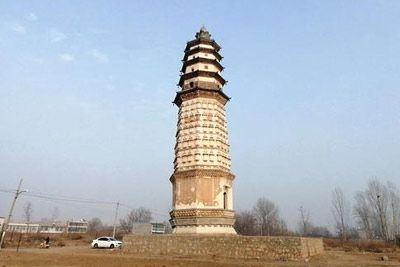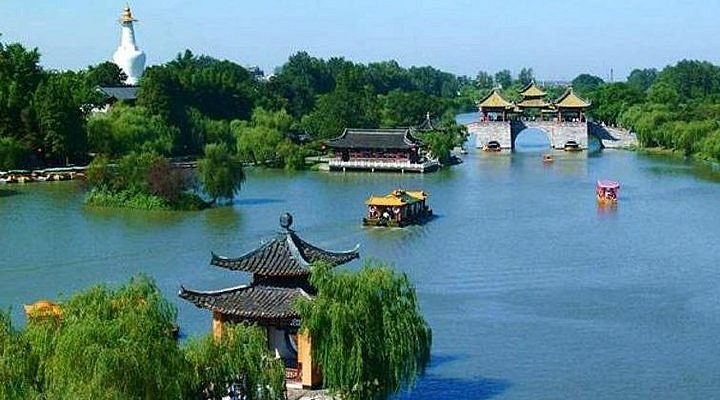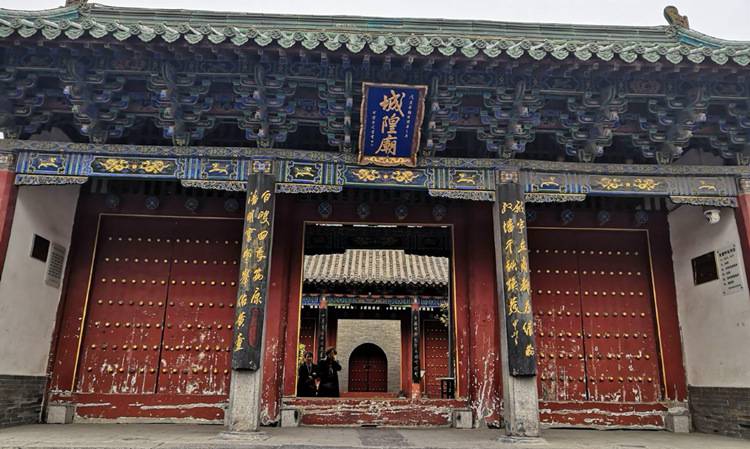Discovering Fushun Pingdingshan Canan Yizhi: A Hidden Gem in Liaoning
An Essential Guide to Visiting Fushun Pingdingshan Canan Yizhi
In This Guide
- An Essential Guide to Visiting Fushun Pingdingshan Canan Yizhi
- The Rich History of Fushun Pingdingshan Canan Yizhi
- Main Highlights: What to See at Fushun Pingdingshan Canan Yizhi
- Planning Your Visit: A Practical Guide
- Tickets, Hours, and Booking
- How to Get There
- Local Cuisine and Accommodation
- Frequently Asked Questions
- Final Thoughts on Your Trip
Nestled in the heart of Liaoning Province, the Fushun Pingdingshan Canan Yizhi, or Pingdingshan Massacre Memorial Site, stands as a solemn reminder of the atrocities committed during one of the darkest periods in history. This poignant memorial is dedicated to the memory of over 3,000 innocent civilians brutally slain by Japanese invaders in 1932, a tragic event that not only scarred the local community but also reverberated throughout the nation.
The memorial site is meticulously preserved, showcasing the remnants of the massacre alongside a wealth of historical artifacts, photographs, and personal accounts that paint a vivid picture of the horrors faced by the villagers during the invasion. Through its exhibits, the memorial not only commemorates the victims but also serves as an educational platform, emphasizing the importance of remembering history to prevent its repetition.
Visitors to the memorial are invited to walk through a landscape steeped in memory—a journey that begins at the entrance, where a striking sculpture encapsulates the theme of resilience against oppression. As you traverse the site, you will encounter various sections including the main memorial hall, a monument honoring the victims, and a gallery showcasing survivor testimonies—each element meticulously designed to evoke reflection and understanding.
Open to the public free of charge, the memorial operates from Tuesday to Sunday, welcoming individuals and groups alike to engage with this critical historical narrative. The Pingdingshan Massacre Memorial is not just a place to remember the past; it is a call to cherish the present, embodying the spirit of resilience that defines the region’s rich revolutionary history. As you explore this memorial, you are not only stepping into a space of sorrow but also into a testament of hope and the enduring strength of the human spirit.
The Rich History of Fushun Pingdingshan Canan Yizhi
The Fushun Pingdingshan Canan Yizhi, or the Pingdingshan Massacre Memorial Site, serves as a poignant reminder of one of the darkest chapters in modern Chinese history. This site is dedicated to commemorating the tragic events that unfolded during the Japanese invasion of China, specifically the massacre that took place in 1932 in Pingdingshan Village, located in Fushun, Liaoning Province.
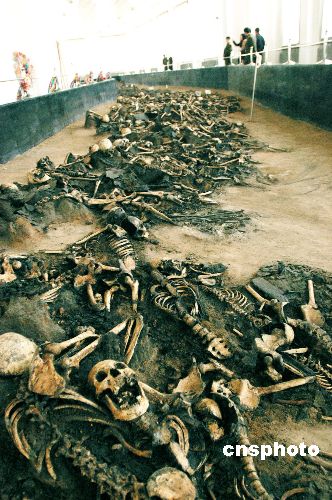
Fushun Pingdingshan Canan Yizhi.
The Pingdingshan Massacre is a stark testament to the brutality exhibited by Japanese imperial forces towards Chinese civilians during their occupation. On September 18, 1931, Japan staged the Mukden Incident, which led to the full-scale invasion of Northeast China. In the following year, as Japanese troops advanced, they perpetrated a horrifying massacre in Pingdingshan, resulting in the deaths of over 3,000 innocent villagers. This atrocity was part of a broader campaign of terror and oppression that characterized the Japanese occupation, marked by systematic violence against the local populace.
The memorial site itself is built on the grounds of the massacre, preserving the historical context and serving as an educational platform. Inside the museum, visitors can find an extensive collection of artifacts, photographs, and documents that narrate the harrowing stories of those who suffered. Additionally, the memorial houses over 800 sets of remains, serving as a solemn tribute to the victims who lost their lives.
Established as a national key cultural relic protection unit, the memorial also acts as a patriotic education base, reminding visitors of the resilience of the Northeast Chinese people in the face of adversity. The mission of the memorial is twofold: to honor the memory of those who perished and to raise awareness about the importance of remembering history to prevent similar atrocities in the future.
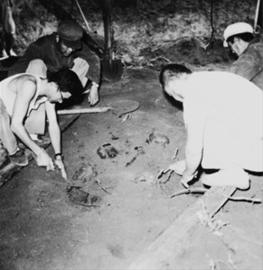
Fushun Pingdingshan Canan Yizhi.
Regularly open to the public, the Pingdingshan Massacre Memorial Site invites visitors to reflect on the sacrifices made during this turbulent time. It stands not only as a monument to the victims but also as a call to cherish peace and uphold human dignity in the contemporary world. By engaging with this important historical site, visitors can gain insights into the enduring legacy of resistance against oppression and the significance of collective memory in shaping a peaceful future.
Main Highlights: What to See at Fushun Pingdingshan Canan Yizhi
Visiting the Fushun Pingdingshan Canan Yizhi (平顶山惨案遗址) offers a profound journey into a dark chapter of history, specifically the atrocities committed during the Second Sino-Japanese War. As one of the best-preserved sites documenting the massacre of Chinese civilians by Japanese imperial forces in 1932, this memorial stands as a poignant reminder of resilience and remembrance.
Key Highlights
-
Historical Significance: The memorial commemorates over 3,000 innocent lives lost in the Pingdingshan Massacre, providing visitors with vital insights into the brutal realities of war. Through extensive exhibits featuring photographs, documents, and artifacts, the site conveys the harrowing narrative of the victims and the atrocities they endured.
-
Emotional Impact: Walking through the memorial, visitors can connect with survivor testimonies and personal stories of those affected by the massacre. This emotional layer enriches the experience, fostering a deeper understanding of the consequences of war and the importance of peace.
-
Architectural Features: The design of the memorial is both solemn and reflective. The main entrance leads to a thematic sculpture that symbolizes the struggle for freedom and justice. As you progress through the site, each area is meticulously curated to guide you through the historical context, enhancing the educational experience.
-
Free Admission: Access to the memorial comes at no cost, making it an accessible destination for all who wish to learn about this critical part of history. The memorial is open from Tuesday to Sunday, inviting visitors to engage with the past in a meaningful way.
-
Surrounding Attractions: The memorial is part of a broader historical circuit in the region, which includes the Fushun War Criminal Management Center and the Wang Zhuoran Library. This makes it an ideal starting point for those interested in exploring more about China’s wartime history and the enduring spirit of resistance.
-
Call to Remember: The memorial serves not only as a site of remembrance but also as a call to future generations to learn from the past. It emphasizes the importance of historical awareness and the collective responsibility to prevent such tragedies from occurring again.
By visiting the Fushun Pingdingshan Canan Yizhi, travelers not only pay homage to those who suffered but also engage in a reflective experience that underscores the values of peace, resilience, and historical consciousness.
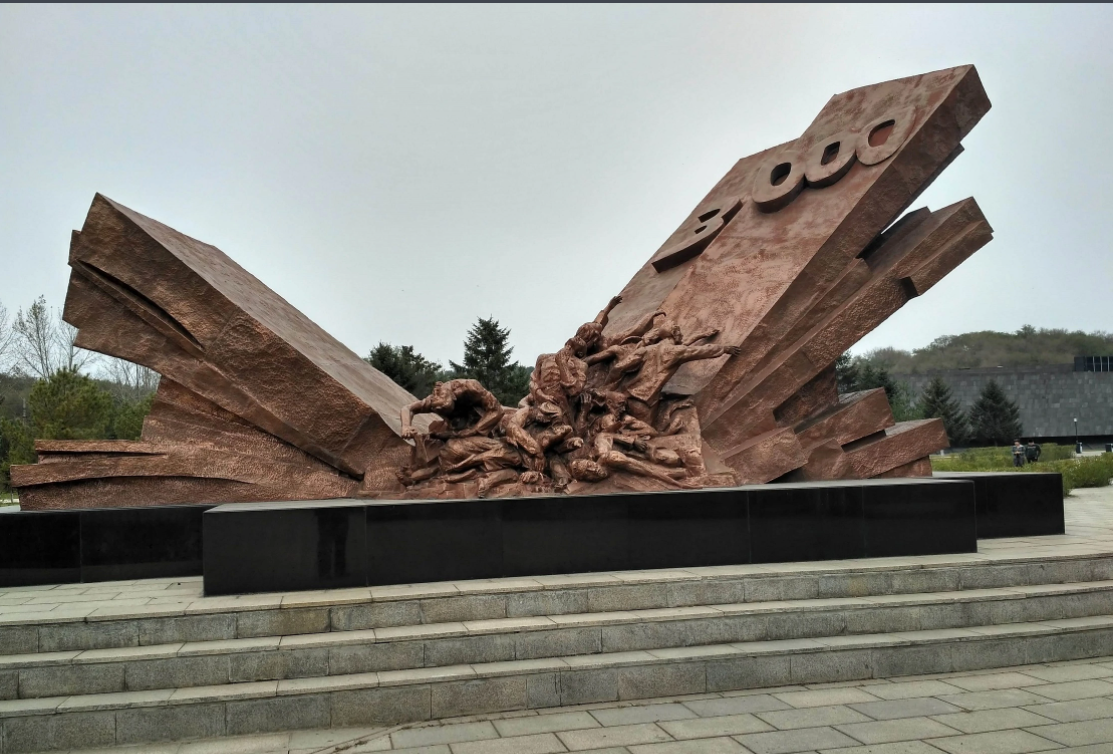
Fushun Pingdingshan Canan Yizhi.
Planning Your Visit: A Practical Guide
Visiting the Fushun Pingdingshan Canan Yizhi (平顶山惨案遗址) is a profound experience that allows visitors to reflect on a significant chapter of history. This site, also known as the Pingdingshan Massacre Memorial, serves as a stark reminder of the atrocities committed during the Second Sino-Japanese War. Here’s a practical guide to help you navigate your visit.
Location and Access
The Fushun Pingdingshan Canan Yizhi is located in Fushun City, Liaoning Province, China. It is easily accessible by various modes of transportation:
– By Car: If you are driving, the memorial is well-signposted. Parking is available nearby.
– Public Transport: Buses and taxis frequently service the area, making it convenient for visitors relying on public transport.
Opening Hours
The memorial is open to the public from Tuesday to Sunday, from 9:00 AM to 4:00 PM. It is closed on Mondays, except for statutory holidays. Plan your visit accordingly to ensure you have ample time to explore the exhibits.
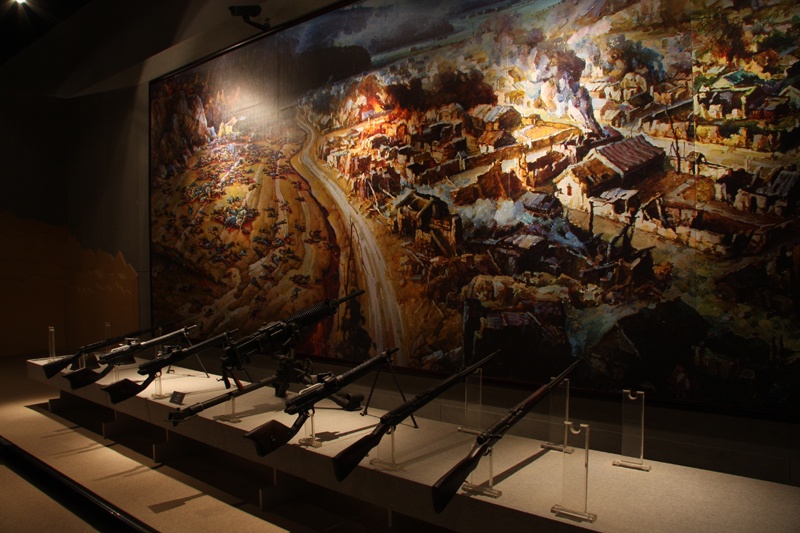
Fushun Pingdingshan Canan Yizhi.
Admission
Entrance to the Fushun Pingdingshan Canan Yizhi is free of charge, allowing everyone the opportunity to learn about this important historical event without financial barriers.
What to Expect
The memorial is built on the site of the 1932 massacre, where Japanese forces killed over 3,000 innocent civilians. The exhibits include:
– Historical Documentation: Extensive displays of photographs, documents, and artifacts that depict the events leading up to and following the massacre.
– Remains of Victims: The memorial houses the remains of more than 800 victims, emphasizing the human cost of war.
– Monuments and Sculptures: Thought-provoking sculptures and monuments commemorate the lives lost and serve as a reminder of the resilience of the human spirit.
Suggested Itinerary
To make the most of your visit, follow this suggested route:
1. Main Entrance: Begin your journey at the main entrance to get an overview of the site.
2. Thematic Sculpture: Take a moment to reflect at the thematic sculpture that sets the tone for the memorial.
3. Main Exhibition Hall: Spend time in the main exhibition hall, where detailed exhibits provide context and background.
4. Memorial Monument: Visit the memorial monument to pay your respects.
5. Site of Remains: Explore the site where the remains of the victims are kept, a poignant reminder of the tragedy.
6. Survivor Testimony Garden: End your visit at the garden dedicated to survivor testimonies, which encapsulates the stories of those who lived through the horrors.
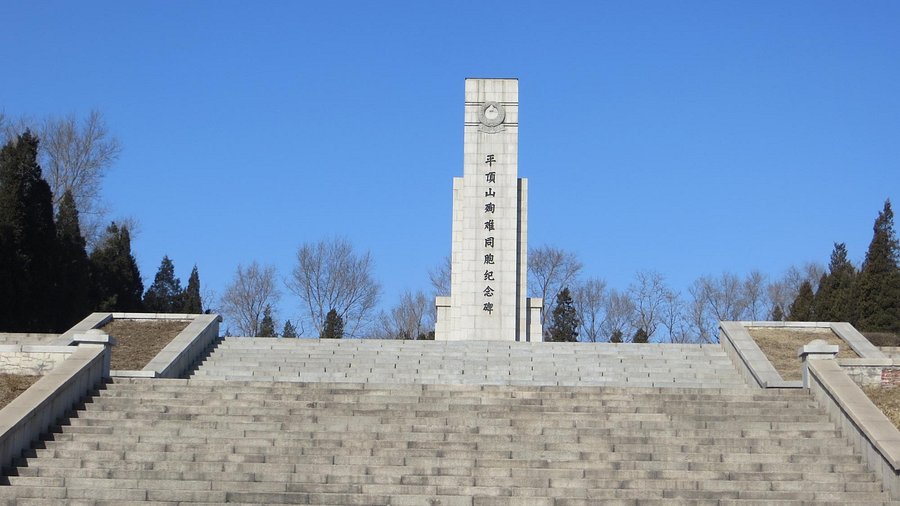
Fushun Pingdingshan Canan Yizhi.
Nearby Attractions
If you have time, consider visiting nearby historical sites to enrich your understanding of the region’s history:
– Fushun War Criminal Management Center: A site that housed Japanese war criminals post-World War II.
– Coal Mine Museum: Learn about the industrial history of the region, including the impact of coal mining during the Japanese occupation.
– Wang Zhuoran Library: A memorial library dedicated to a renowned educator and social activist.
Tips for Visitors
- Respect the Site: As a memorial to the victims, maintain a respectful demeanor and follow any posted guidelines.
- Photography: While photography is allowed, be mindful of the sensitive nature of the exhibits.
- Plan for Reflection: Allow time for personal reflection as you explore; this site is as much about remembrance as it is about education.
Conclusion
The Fushun Pingdingshan Canan Yizhi offers a powerful and educational experience for visitors. Engaging with the history of the Pingdingshan Massacre fosters a deeper understanding of the past and its implications for the present and future. Prepare your visit with this guide, and take the opportunity to honor the memory of those who suffered during this dark period in history.
Tickets, Hours, and Booking
Visiting the Fushun Pingdingshan Canan Yizhi (平顶山惨案遗址) is an important experience for those interested in historical events, particularly the atrocities committed during World War II. The memorial serves as a poignant reminder of the tragic events that unfolded in this region, specifically the massacre of innocent civilians by Japanese forces.
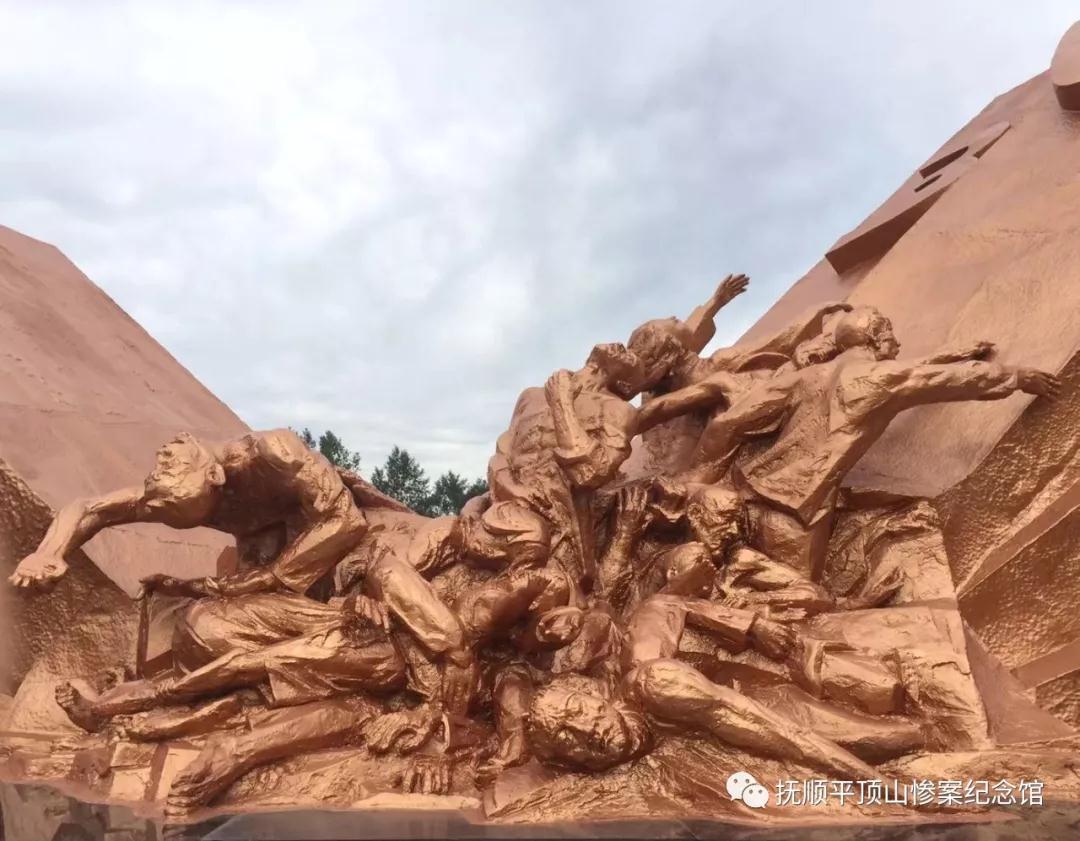
Fushun Pingdingshan Canan Yizhi.
Admission Details
-
Ticket Price: Entry to the memorial is free of charge, allowing visitors to reflect on the historical significance without the burden of an admission fee.
-
Opening Hours: The memorial is open Tuesday through Sunday from 9:00 AM to 4:00 PM. It is closed on Mondays, except during public holidays when it remains accessible to visitors.
Visiting Experience
The memorial’s layout is designed to guide visitors through a journey of remembrance and education. Upon arrival, guests typically follow a designated route that includes significant landmarks such as:
- Main Entrance – The starting point of your visit.
- Thematic Sculpture – A poignant artistic representation capturing the essence of the memorial.
- Main Exhibition Hall – Featuring extensive displays of historical documents, artifacts, and multimedia presentations that recount the grim events of the massacre.
- Commemorative Monument – A solemn site for reflection and remembrance of the victims.
- Ruins Exhibition Hall – Showcasing the remnants of the past, providing insight into the historical context of the tragedy.
- Survivor Testimony Park – A space dedicated to the voices of those who experienced the atrocities firsthand, serving as a powerful reminder of resilience and the human spirit.
Planning Your Visit
Given the memorial’s significance, visitors are encouraged to allocate ample time for exploration and contemplation. The absence of an entry fee makes it accessible for everyone, promoting a deeper understanding of this dark chapter in history. Whether you are a history enthusiast or simply looking to pay respects, the Fushun Pingdingshan Canan Yizhi offers a profound experience that reminds us of the importance of remembrance and education in preventing future atrocities.
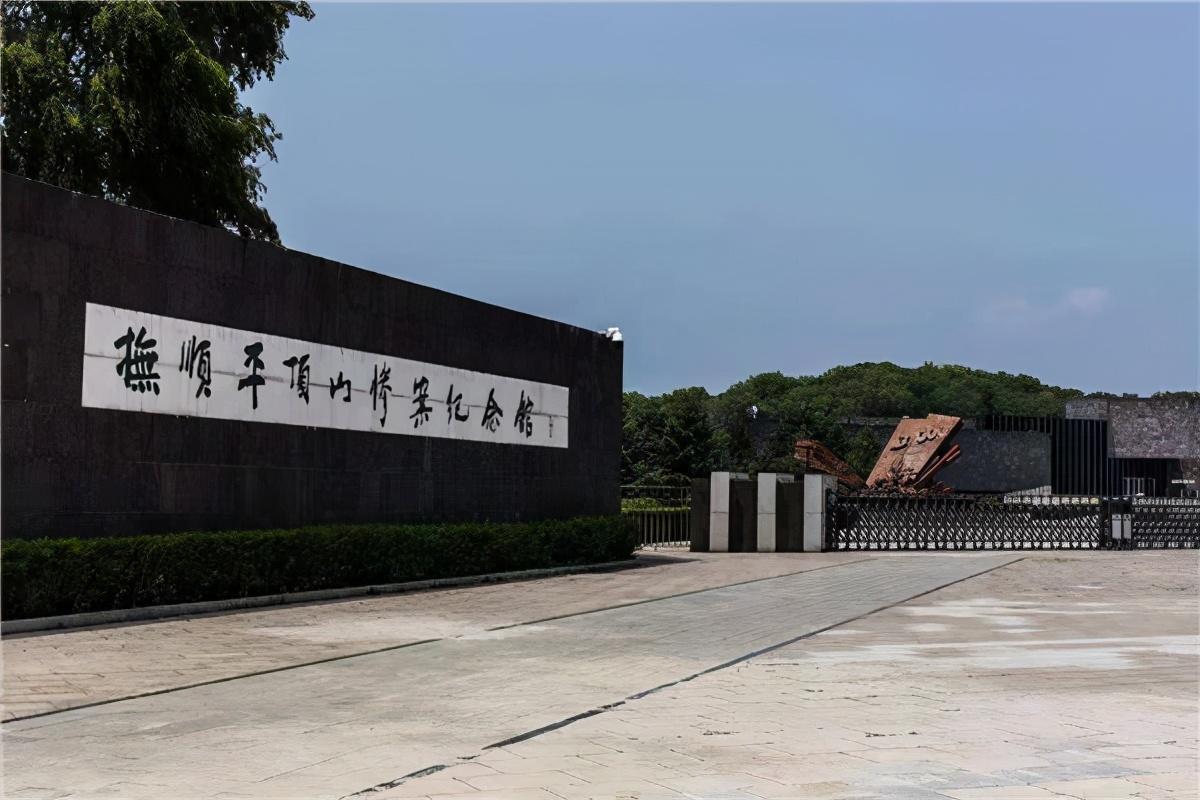
Fushun Pingdingshan Canan Yizhi.
How to Get There
Reaching Fushun Pingdingshan Canan Yizhi, also known as the Pingdingshan Massacre Memorial Site, is relatively straightforward, and various transportation options are available to ensure a smooth journey to this important historical location.
Getting There by Plane
The nearest major airport to the Pingdingshan Massacre Memorial is Shenyang Taoxian International Airport (SHE), located approximately 60 kilometers away. This airport offers domestic flights from various cities across China, as well as some international connections. Upon arrival at the airport, visitors can rent a car, take a taxi, or use ride-sharing apps to reach Fushun. The drive from the airport typically takes about 1 to 1.5 hours, depending on traffic.
By Train
Fushun has a well-connected railway system, making train travel a convenient option. The Fushun Railway Station is accessible via high-speed trains from major cities such as Beijing, Shenyang, and Dalian. Upon arrival at Fushun Railway Station, you can take a taxi or local bus to the memorial site. The distance from the train station to the memorial is around 15 kilometers, which can be covered in approximately 30 minutes by taxi.
Local Transportation Options
Once in Fushun, several local transport options are available:
-
Taxis and Ride-Sharing: Taxis are readily available, and services like Didi (a popular ride-sharing app in China) can be used to book rides directly to the memorial. Ensure to have the destination written in Chinese to show the driver.
-
Public Buses: For those looking to save on transportation costs, local buses operate routes that connect Fushun city center to various attractions, including the Pingdingshan Massacre Memorial. Bus routes and schedules can be found at the local bus stations, but be prepared for potential language barriers.
-
Bicycle Rentals: For the more adventurous, some areas in Fushun offer bicycle rentals, allowing visitors to explore the city at their own pace. Although this might not be the fastest way to reach the memorial, it offers a unique way to experience the local culture.
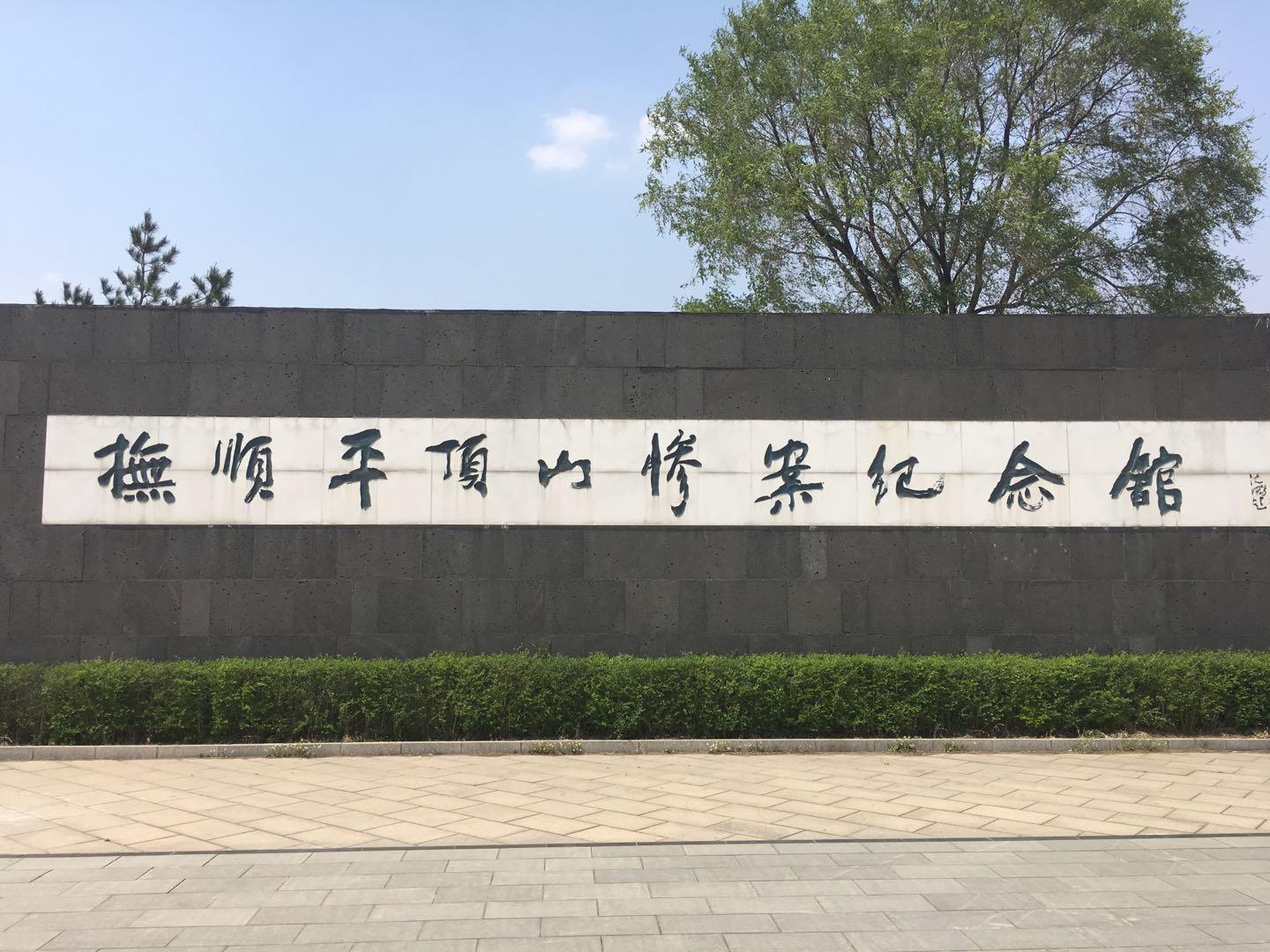
Fushun Pingdingshan Canan Yizhi.
Recommended Routes and Itinerary
If you are planning to visit multiple sites in Fushun, consider a day itinerary that includes:
1. Pingdingshan Massacre Memorial Site – Start your day here to learn about the historical significance of the site.
2. Fushun War Criminal Management Institute – A short drive from the memorial, this site provides further insights into the history of World War II in the region.
3. Wang Zhuoran Library – A cultural visit to honor a prominent local figure and educator.
4. Coal Mine Museum – To understand the industrial history of Fushun, which has deep roots in coal mining.
Conclusion
Whether you choose to fly, take a train, or drive, reaching the Pingdingshan Massacre Memorial in Fushun is convenient. With various local transportation options available, visitors can easily navigate their way to this significant site, ensuring a meaningful and educational experience.
Local Cuisine and Accommodation
When visiting the Fushun Pingdingshan Canan Yizhi (平顶山惨案遗址), it’s essential to complement your historical exploration with some delightful local cuisine and comfortable accommodations. Here’s a guide to ensure your stay is as enriching as your visit to this poignant memorial.
Culinary Delights
Fushun offers a variety of dining options that reflect both local and broader Chinese cuisine. Here are a few must-try dishes and recommended eateries:
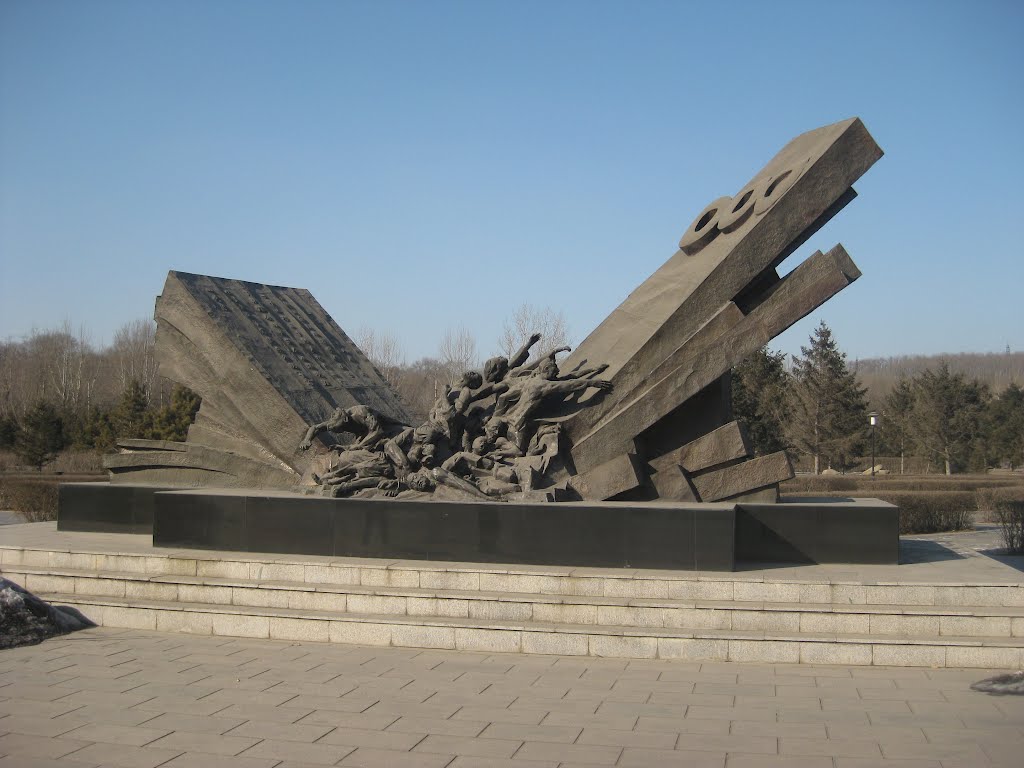
Fushun Pingdingshan Canan Yizhi.
-
Northeast Dumplings (Jiaozi): Known for their generous fillings and thick skins, these dumplings are a staple in the region. Head to Lao Jiaozi for a local favorite, where you can try different variations, including pork, cabbage, and even seafood.
-
Liaoning-style Barbecue (Chuan): The Northeast is famous for its barbecue culture. Xiao Wang Chuan offers an array of skewers, from lamb to vegetables, grilled to perfection. Pair it with a local beer for a true taste of the region.
-
Hot Pot (Huo Guo): For those looking for a communal dining experience, hot pot is a great choice. Huo Guo Yu is popular among locals and tourists alike, offering a range of fresh ingredients and flavorful broths.
-
Noodle Dishes: Try the Suan La Fen, a spicy and sour noodle dish that reflects the local palate. Noodle House serves an excellent version that keeps patrons coming back for more.
-
Desserts: Don’t miss out on Tangyuan (sweet rice balls). Visit Sweet Dreams Dessert Shop for a delightful assortment, including traditional fillings like sesame and red bean.
Accommodation Options
After a day of reflection and exploration, you’ll want a comfortable place to rest. Fushun has a variety of accommodations catering to different budgets:
-
Luxury Stay: Fushun International Hotel is a top choice for those seeking comfort and amenities. With spacious rooms, an on-site restaurant, and excellent service, it’s perfect for a relaxing retreat.
-
Mid-Range Option: Jinjiang Inn offers clean, modern rooms at reasonable prices. It’s conveniently located near transport links, making it easy to explore the area.
-
Budget-Friendly Hostels: For those on a tighter budget, Fushun Youth Hostel provides a cozy and friendly atmosphere. It’s a great way to meet fellow travelers and share experiences about your visit to the memorial.
-
Guesthouses: Consider Happy Family Guesthouse for a more intimate experience. This family-run establishment offers a taste of local hospitality and home-cooked meals, making it a unique stay.
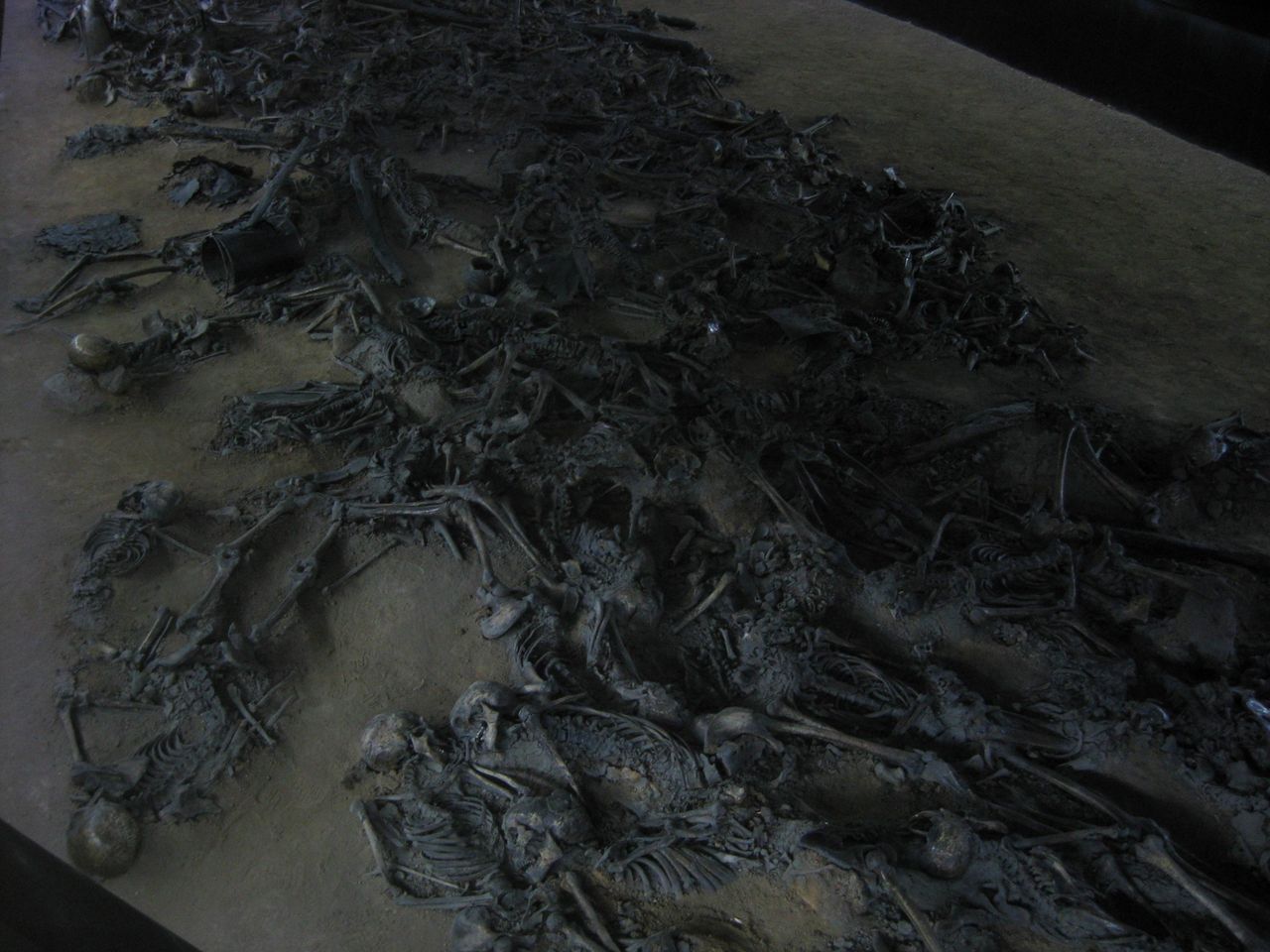
Fushun Pingdingshan Canan Yizhi.
Tips for Your Visit
- Reservations: It’s advisable to make reservations, especially during peak tourist seasons.
- Local Etiquette: Familiarize yourself with local dining customs, such as sharing dishes and communal eating, to enhance your experience.
By indulging in the local cuisine and selecting the right accommodation, your visit to Fushun Pingdingshan Canan Yizhi will be both memorable and comfortable, allowing you to fully engage with the significant history of the site. Enjoy your journey!
Frequently Asked Questions
Frequently Asked Questions about Fushun Pingdingshan Canan Yizhi (Fushun Pingdingshan Massacre Memorial Site)
-
What is the Fushun Pingdingshan Canan Yizhi?
The Fushun Pingdingshan Canan Yizhi is a memorial site dedicated to the victims of the Pingdingshan Massacre, which occurred in 1932 during the Japanese invasion of China. It serves as a historical reminder of the atrocities faced by innocent civilians and aims to educate visitors about this dark chapter of history. -
Is there an entrance fee to visit the memorial?
No, entrance to the Fushun Pingdingshan Canan Yizhi is free of charge. Visitors can explore the memorial and its various exhibits without any admission fees. -
What are the opening hours of the memorial?
The memorial is open from Tuesday to Sunday, from 9:00 AM to 4:00 PM. It is closed on Mondays, except during statutory holidays. -
What can I expect to see at the memorial?
The memorial features several key areas, including a main exhibition hall, theme sculptures, a monument, and a site museum. Visitors can view historical artifacts, photographs, and the preserved remains of victims to gain a deeper understanding of the events that transpired. -
How can I reach the Fushun Pingdingshan Canan Yizhi?
The memorial is accessible by public transportation and private vehicles. It is advisable to check local transit routes or use GPS for precise directions. -
Are there any guided tours available?
Yes, guided tours may be offered at the memorial. These tours can provide in-depth information about the massacre and the significance of the memorial, enhancing the educational experience for visitors. -
Is the memorial suitable for children?
While the memorial is educational, some content may be distressing due to its historical context. Parents are encouraged to assess whether the material is appropriate for their children and to accompany them during the visit. -
Can I take photographs at the memorial?
Yes, visitors are generally allowed to take photographs within the memorial grounds. However, it’s wise to be respectful and mindful of the solemn nature of the site, especially in sensitive areas.
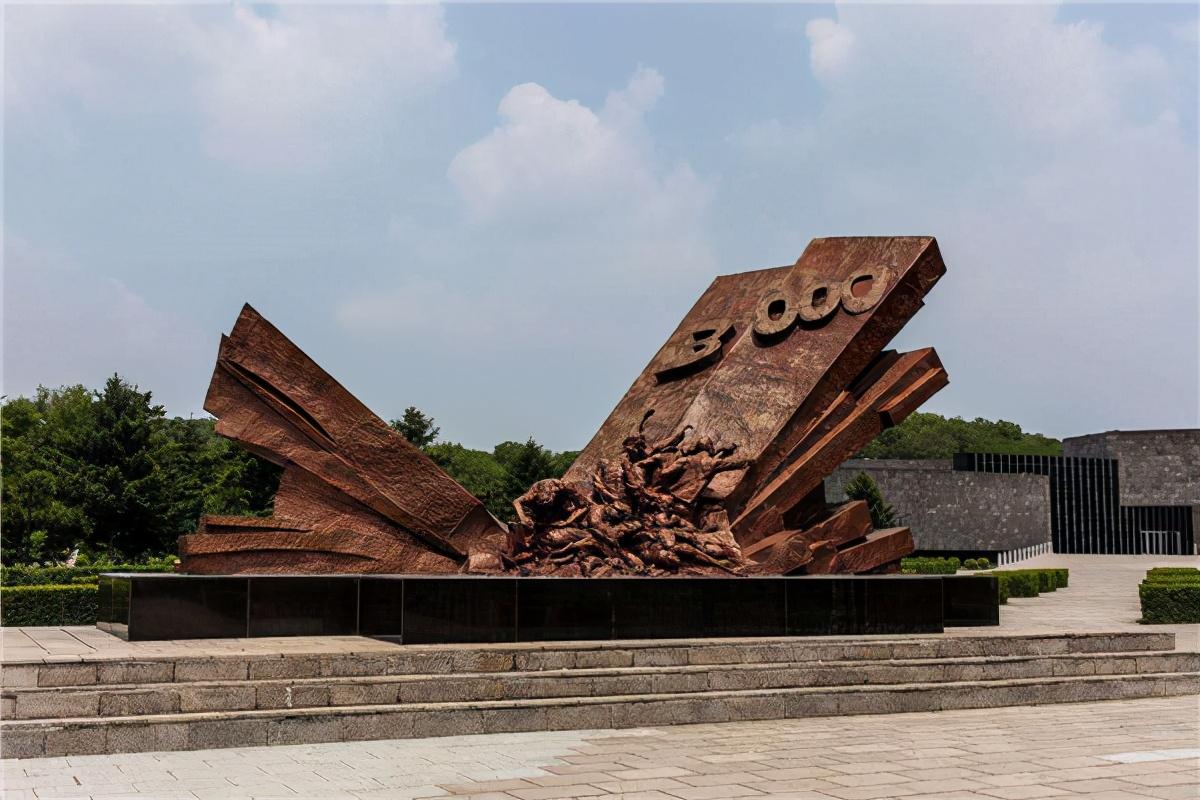
Fushun Pingdingshan Canan Yizhi.
Final Thoughts on Your Trip
Visiting the Fushun Pingdingshan Canan Yizhi is more than just a journey through history; it is a profound opportunity to reflect on the resilience of the human spirit. The memorial stands as a poignant reminder of the atrocities faced by innocent civilians during a dark chapter of the Second Sino-Japanese War. Through the haunting relics, testimonies of survivors, and meticulously curated exhibits, visitors are encouraged to confront the harsh realities of the past while honoring the memory of those who suffered.
This site serves not only as a memorial but also as an educational platform, emphasizing the importance of remembrance in preventing the repetition of such tragedies. As you walk through the grounds, you are invited to engage with the stories etched into the very fabric of this place, fostering a deeper understanding of the sacrifices made for peace and justice.
Ultimately, a visit to the Pingdingshan site is a call to cherish and protect the hard-won peace of today, to honor the legacy of those who fought against oppression, and to carry forth the lessons of history into our collective future. Embrace this opportunity to reflect, learn, and advocate for a world where such suffering is no longer tolerated.
